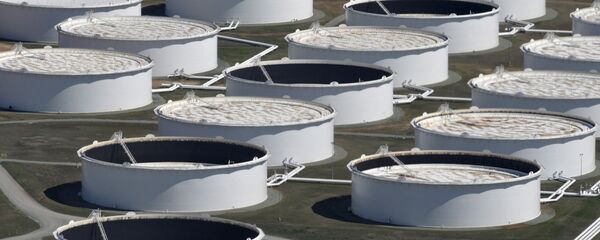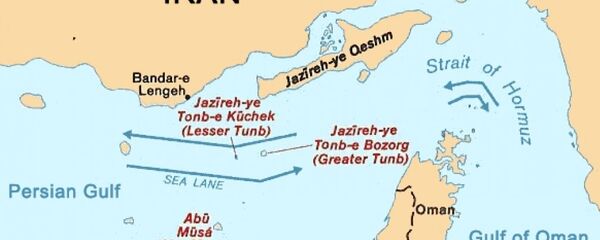"We have every intent of driving Iranian oil exports to zero just as quickly as we can", Pompeo said on Tuesday evening.
Moreover, Pompeo urged the whole oil industry to work with Washington in order to promote US foreign policy, especially in Asia and in Europe, and to punish what he dubbed "bad actors" on the world stage.
"We need to roll up our sleeves and compete – by facilitating investment, encouraging partners to buy from us and by punishing bad actors", Pompeo said.
READ MORE: Iran Has Other Ways to Stop Oil Flow Besides Closing Strait of Hormuz — Official
The US Secretary of State also said that the US oil and gas export boom had allowed Washington to meet energy demands once satisfied by its geopolitical rivals.
The first round of sanctions came into force in August, followed by a second round in November. The sanctions targeted not only Iran's economy but also individuals and entities that continued doing business with Iran. The US restrictions also included measures that curb Iran's oil industry.
According to the IRNA news agency, Tehran’s revenue from oil exports in the first nine months of the current Iranian year — which runs from 21 March 2018 to 20 March 2019 — have increased by 48.9 percent year-on-year, despite the reimposition of US sanctions. The main reason for the increase in revenue was reportedly the oil price hike in global markets.
READ MORE: OPEC to Postpone Policy Decision Until June Amid Solid US, China Demand
Iran's oil revenues from that period amounted to over $17 billion. However, the price of oil has recently dropped from $80 per barrel to $50 against the background of the trade war between the United States and China, as well as oversupply on the oil market.
Iranian Oil Minister Bijan Zangeneh said last month that Iran’s gasoline production has grown over 100 percent since 2013, currently totaling 101 million liters (26.7 million gallons) per day. In 2013, Iran’s output stood at 50 million liters per day, according to the Mehr News Agency.
In 2017, US President Donald Trump announced six new energy initiatives aimed at achieving US energy dominance around the world. His initiatives touched on nuclear energy, coal, trade barriers, a US-Mexican pipeline, offshore leasing and Liquefied Natural Gas (LNG).
Since taking office, Trump has also rolled back regulations that hindered the construction of domestic oil pipeline projects such as the Dakota Access and Keystone XL pipelines.
READ MORE: OPEC Touts Additional Measures to Support Oil Prices Amid Modest Rebound




